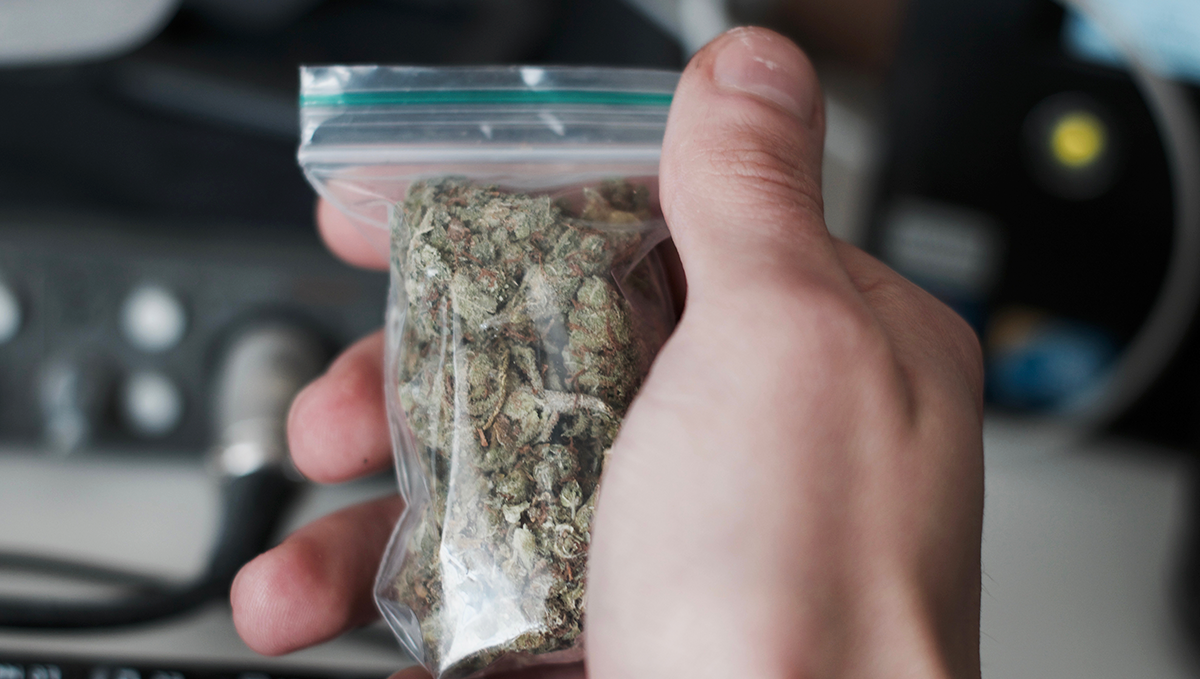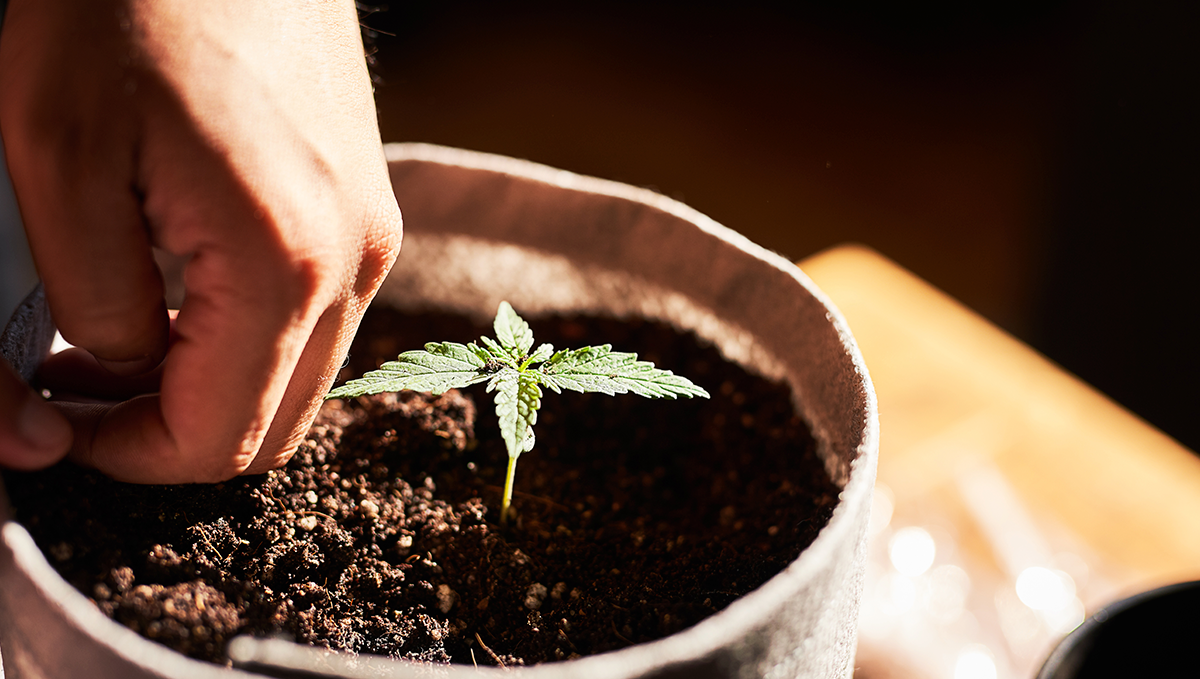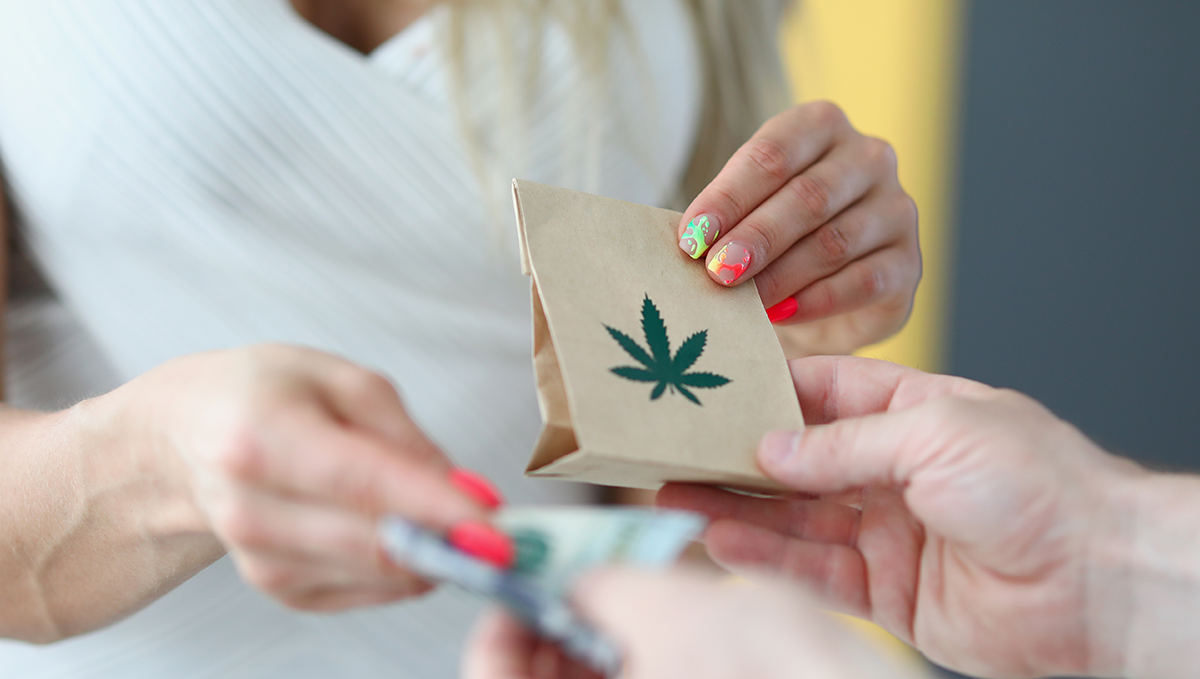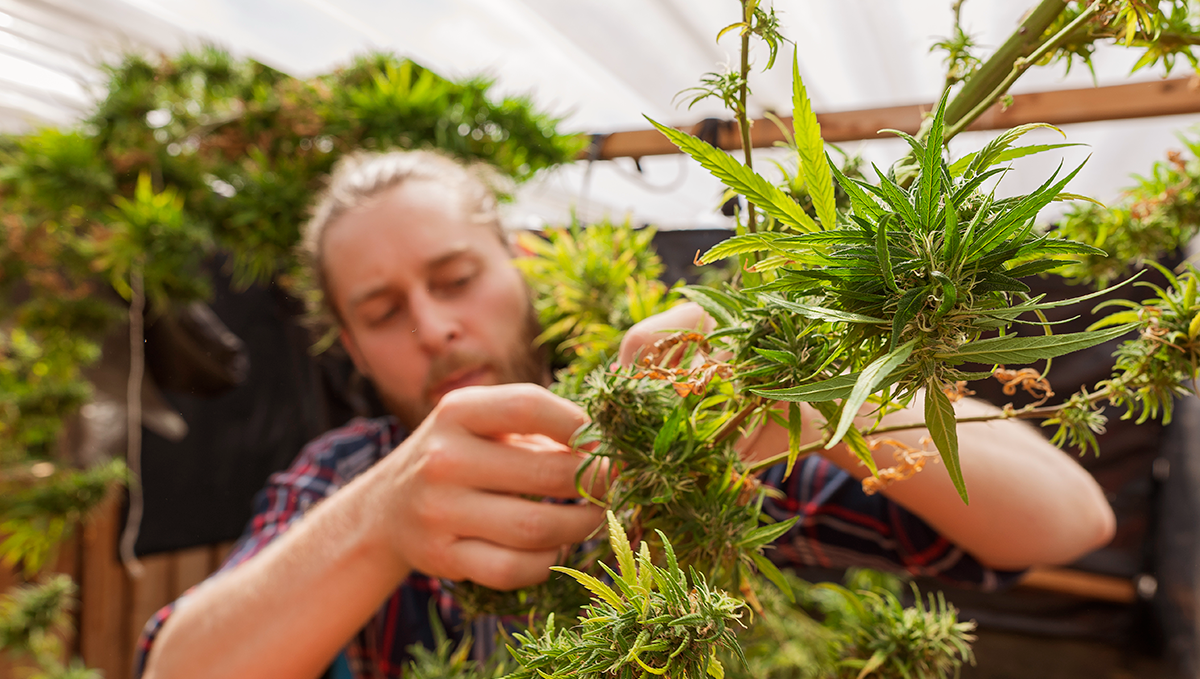This article was originally published on 2Fast4Buds and appears here with permission.
1. CANNABIS LAWS IN RUSSIA
Home to over 144 million people, The Russian Federation is Europe’s largest country by both land mass and population. But is there access to legal weed in Russia? Notorious for its totalitarian regimes of the past, it probably doesn’t come as a surprise to learn that cannabis is, in fact, illegal in Russia. Indeed, the country is known for having the highest number of people currently imprisoned (per capita) for drug offenses in Europe.
Indeed, as you might expect, the Russian government is known for taking a particularly hard line with both the possession and use of cannabis. In this article, we’ll take an in-depth look at Russia's weed laws but before we get deep into the details, let’s start with the basics.
POSSESSION
In accordance with the country’s Criminal Code, the possession of cannabis is punishable with a fine and/or a prison sentence. However, a change to the law in 2012 allowed for the potential for penalties to be deferred if the offender is found to suffer from addiction issues. Those found to be in possession of small quantities of up to six grams will fall foul of Russian administrative law, punishable by a fine or short prison sentence of two weeks. However, those found in possession of more than seven grams will face more serious criminal charges.

Penalties for cannabis use in Russia could result in a long prison sentence.
As you might expect, those serious charges carry severe punishments, and if you want to be entirely safe from the possibility of criminal charges, it is recommended not to carry anything above 1gram of cannabis, as authorities have been known to exaggerate the amount of cannabis found on potential suspects. Indeed, getting caught with weed in Russia is definitely not a good idea. So consider the vast penalty for weed in Russia before firing one up in Red Square!
- A fine of up to 40,000 roubles (around 600 euros)
- Compulsory labour for up to 480 hours
- Corrective labour for up to two years
- Potential Prison sentence of up to three years.
For those found guilty of being involved in larger-scale operations, the penalties are even stiffer, with a fine of up to 500,000 roubles (around 7000 euros) and a potential prison sentence of up to twelve years. Given all that, possession or using cannabis in Russia is just not worth it, but despite the risks, it is thought that as many as 8.5 million people still consume the plant on a regular basis. For those who are caught, the chances of avoiding serious penalties are remarkably slim, with the acquittal rate currently standing at just 0.1%.
SALE
Much like possession, the sale of cannabis is also considered to be a serious offense, and anyone caught selling the plant can expect a range of similarly harsh sentences. Even small-time operators can expect to lose their liberty (house arrest or potential prison sentence) for several years.
Large-scale operations have resulted in heavier sentences of up to twelve years in prison and a fine of up to 1,000,000 roubles. Indeed, should the operation be part of a wider network of organized crime, offenders could even find themselves facing a sentence of up to twenty years. Despite the draconian laws and stiff penalties, drug trafficking, including that of cannabis, remains a significant concern in the Russian Federation.
GROWING
Unsurprisingly, the cultivation of cannabis is also illegal in Russia. Much the same as the punishments for possession or sale, marijuana cultivation in Russia is a particularly risky business, with prison sentences an inevitability, even for those found to be in possession of only a small number of plants.

It is illegal to grow cannabis in Russia.
Despite Russia’s hard-line approach to cannabis usage, there has been some positive movement politically. Back in the summer of 2019, a bill was passed by the Russian government that potentially allowed for the cultivation of marijuana for medicinal purposes. However, as of yet, the bill has yet to be signed into law and progress on the issue remains deadlocked for the time being.
2. IS CBD LEGAL IN RUSSIA?
In a word, NO. CBD in Russia is illegal, irrespective of the THC levels contained within the product. Even CBD oil made from hemp is considered an illegal narcotic, while it is not even possible to have CBD products shipped into Russia by mail. Indeed, the recent case of US female basketball player Brittney Griner arrested for possessing hashish oil illegal in Russia highlights the dangers of possessing these kinds of products inside Russian borders.
3. IS IT LEGAL TO SEND CANNABIS SEEDS TO RUSSIA?
No surprises here - Cannabis seeds are also illegal and may not be sent into or out of the country.
4. MEDICINAL CANNABIS IN RUSSIA
Despite the 2019 bill mentioned earlier, the use of medical cannabis in Russia remains illegal. Still considered to be in the highest category of narcotic and psychoactive substances within the country, Russian medical cannabis access remains strictly forbidden. List I substances, including that of cannabis, are subject to the strictest governmental regulation.

Despite the amended law, medicinal cannabis is still illegal in Russia.
In July 2019, the Russian government amended the Law on Narcotic and Psychotropic Substances. It partially legalized the cultivation of plants containing drugs for manufacturing narcotics and psychoactive substances for medical or veterinary use. The regulation was expected to partially allow the cultivation of cannabis for medical or veterinary use, but to date, nothing has materialized in this regard. Given all that, medical cannabis remains inaccessible in Russia, and that seems unlikely to change in the near future, given the current circumstances the country currently faces.
5. INDUSTRIAL HEMP IN RUSSIA
Russia once relied heavily on hemp as a crop. In fact, hemp fiber constituted one of the primary sources of income for many parts of the country during the 18th century. Indeed, hemp had been an essential commodity in Russia for hundreds of years, with the country becoming the largest producer in the world midway through the eighteenth century. At this point, it is estimated that around 80% of the hemp used in Europe came from Russia, with the material proving more lucrative for Russians than even metal, wood, or fur.
Moving into the nineteenth century, the UK relied heavily on Russian hemp, which resulted in a so-called hemp war with Napoleon. However, by 1807, the French agreed on a peace treaty with Tsar Alexander I on the condition that the Soviets would stop supplying hemp to the UK.

Cannabis hemp plants.
However, the agreement proved-short lived, and just a few years later, the hemp trade between Russia and the UK had reemerged. Angered by the Russian betrayal, Napoleon would lead his army to Moscow in 1812 in a bid to take control of the Russian hemp supply. However, Napoleon’s army was swiftly overwhelmed, and the Russians maintained control over their lucrative hemp industry. Indeed, around 40% of European hemp was produced by Russia until the nineteenth century.
However, as Russia moved into the twentieth century, the hemp trade would decline significantly both because of negative perceptions of the plant (what else is new) and because of the reduced acreage and relatively low yields. After the fall of the Soviet Union in 1991, hemp cultivation would decline further. Yet, despite the decline in the industry, hemp was never illegalized and is still grown in the country today. While there were once sixteen hemp farms cultivating hemp, today, just one exists in Volkhov.
However, despite the industrial decline, it is estimated that there are roughly 2.5 million hectares of wild hemp growing in the east of the country in and around the Black Sea.
6. HISTORY AND POLITICS
Russia has a long relationship with the marijuana plant, with evidence existing that suggests cannabis was being used in the country thousands of years ago. An archaeological dig at a burial site in the Altai Mountains revealed that the country’s people consumed the plant for medicinal, religious, or spiritual purposes. It is thought that the plant first entered the country with the Scythians, a nomadic group known for transporting cannabis as they moved throughout many different countries thousands of years ago.
Despite its rich history with the plant, Russia remains very much anti-cannabis in its approach today. As we have explained in this article, the Russian approach to cannabis remains extremely hard-line, with the penalty for weed in Russia some of the harshest across Europe. Indeed, the Russian stance on their opposition to cannabis has been self-evident, with the government’s response to Canada’s legalization of the plant being that the Canadians had “deliberately decided to breach” international law.
Consistently opposed throughout his presidency since the turn of the twentieth century, President Putin has spoken about his disapproval both of the plant and its legalization in other countries. Indeed, there have even been reports that the Russian government threatened to remove access to Wikipedia if the company did not delete certain pages regarding the methods of producing types of hash. In a country where freedom and liberty cannot be taken for granted, Russian censorship of cannabis information online only serves to illustrate their firm stance on the issue.
Russian intolerance of cannabis and cannabinoids extends to the sporting world, where sportsmen are prohibited from using cannabinoids, according to an order issued by the Russian Ministry of Sports in 2018. Unfortunately, the Russian government’s negative stance and opposition to the plant are also reflected in the general population’s acceptance of cannabis users. Various polls, of which the veracity can hardly be certain, it should be stated, suggest that upwards of 90% of the population are against the legalization of marijuana.
Not as popular or as commonly used in other European countries, it is estimated that just under 4% of the Russian population uses cannabis. Given the harsh penalty for weed in Russia, it’s hardly surprising that such a small minority of the country partakes in cannabis consumption. Given all that, Russia's weed laws, particularly for recreational users, are unlikely to change anytime in the near or distant future. While the legalization of medical use has been discussed, as evidenced in the still to be made into law bill of 2019, Russian progress on medical cannabis law remains slow. Indeed, the Russians have even adopted a counter-drugs strategy that is to run until at least 2030. The strategy suggests that the use of cannabis for recreational purposes should be viewed as a significant threat to the Russian healthcare system.
7. GOOD TO KNOW
Given the current conflict in the region, it´s fair to say that Russian weed laws are not high on the agenda of the government. With few outside visitors expected in the coming months, the subject of cannabis in Russia is one that will surely take a back burner while the crisis with Ukraine continues to unfold.
However, if you do find yourself inside Russian borders in the coming months, avoiding cannabis is probably your safest bet if you want to avoid the potentially harsh penalty for weed in Russia that may occur as tensions with western nations continue to rise.
© 2025 Benzinga.com. Benzinga does not provide investment advice. All rights reserved.
Trade confidently with insights and alerts from analyst ratings, free reports and breaking news that affects the stocks you care about.
Cannabis is evolving – don’t get left behind!
Curious about what’s next for the industry and how to leverage California’s unique market?
Join top executives, policymakers, and investors at the Benzinga Cannabis Market Spotlight in Anaheim, CA, at the House of Blues on November 12. Dive deep into the latest strategies, investment trends, and brand insights that are shaping the future of cannabis!
Get your tickets now to secure your spot and avoid last-minute price hikes.